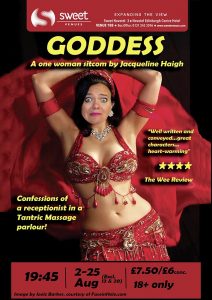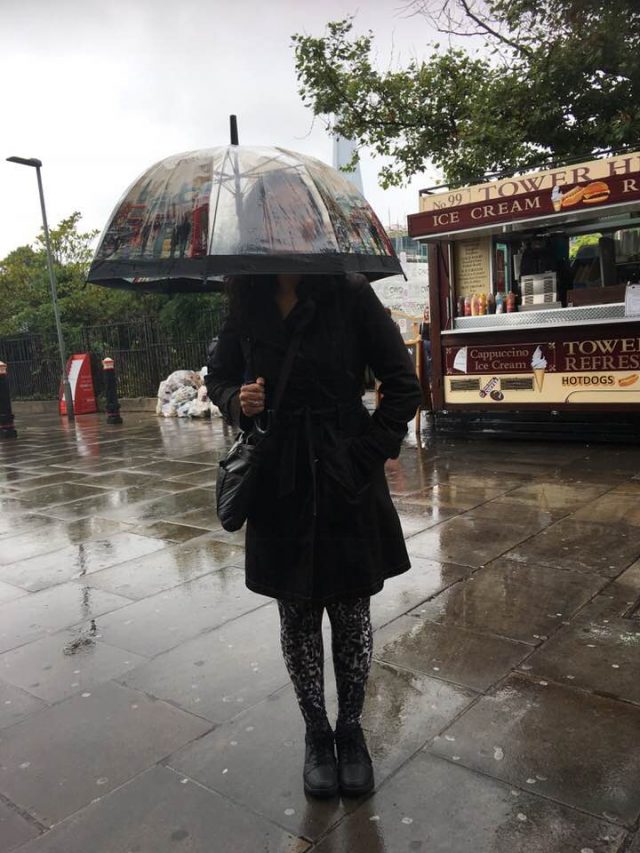This August, like most comedians, I decamped from London and headed to Edinburgh for the Fringe.
It’s the world’s largest arts festival; in many ways, the Cannes Film Festival for comedy. Although, in Cannes you only have to sustain the heavy drinking for a few days. In Edinburgh, it goes on for nearly a month and tends to be Tennents, rather than Moët.
This mass summer exodus is preceded by a flurry of anxious posts on performers’ social media. It’s an intensely pressurised month, mainly due to the costs of taking up a show, especially for the venue, publicity, and accommodation, with rents doubling or even tripling during the festival.
If you’re a full-time artiste, you probably have the time but not the money to fund this endeavour, unless you’re backed by the bank of Mum and Dad. If you have a day job, you might have the finance, but blagging a month off work is likely to prove challenging.
However, some get lucky. I heard of one stand up whose boss loved comedy so much, he gave him every August off and is now funding his tour! Where can I find a job like that?
Fringe shows tend to only last fifty minutes, but the struggle to get an audience is endless. Every day, you pound the pavement, trying to lure people in, like an unsexy streetwalker. If you’re flush, you hire someone to do it for you and call it your “street team”.
You can’t go anywhere in Edinburgh without hundreds of flyers being thrust in your face. It’s an ecological nightmare, but it’s the only way for an unknown act to get a crowd. People are more likely to go and see a performer they’ve spoken to and connected with. It can be exhausting and demoralising, but it works.
Then there’s the non-stop Twitter, Facebook and Insta posts to sell your show. You start with the confident approach: “It’s such fun. Come along, you’ll love It!”
But you end up as desperate: “Pleeease come, otherwise I’ll be alone in a room questioning my sanity…”
In some ways, social media has levelled the playing field because anyone can promote their work without finding the two-grand minimum for professional PR. However, it also means that it’s now harder to get your voice heard because everyone’s screaming at once.
According to Google, in 2018, there were more than 55,000 performances of 3,548 different shows over the month, with nearly three million tickets sold. And that doesn’t include the Free Fringe, which runs on donations. No wonder everyone’s lost their voice by the end!
There’s no doubt about it; going to Edinburgh is a huge risk. Yes, it can pay off. Some shows break through and their auteurs gain fame and fortune; most famously, in recent times, Phoebe Waller Bridge with her outstanding Fleabag.
But, of course, most acts don’t. The majority shuffle back to London on the 27th August with the ubiquitous Edinburgh flu, wondering how the hell they’re going to pay off all that debt.
The odds aren’t good but, as Elizabeth Gilbert notes in Big Magic, “Artists, by nature, are gamblers.” You could add hopeless optimists. We just can’t help ourselves.
Of course, there’s also the pressure of your work being reviewed badly, or not at all. It can feel very exposing, laying out your soul for all to see. As my actress friend said, “I feel like I’m in a giant shop window.” You just hope your “goods” don’t go off!
Because the stakes are so high, everyone is under a tonne of stress. Mental health at the festival has become a hot topic lately. The Fringe office are doing their best to address the problem, hosting talks on the subject and providing a sanctuary where performers can relax and have a free massage.
The weather in Edinburgh can also get you down as, despite being August, it’s often cold, with torrential rain. But that’s good for comedy. When it’s hot and sunny, who wants to sit in a darkened room to listen to a comic ranting about their neurosis when you could be outside drinking cider?
 In many ways, I’m lucky. As a writer, I can take my work wherever I go, like a nerdy snail. I also didn’t have to whack the credit cards. I paid to go to Edinburgh with the money I received penning the memoirs of a woman who used to run brothels. Ironic, as my “one-woman sitcom” Goddess is about my time working as a receptionist in a Tantric Massage parlour.
In many ways, I’m lucky. As a writer, I can take my work wherever I go, like a nerdy snail. I also didn’t have to whack the credit cards. I paid to go to Edinburgh with the money I received penning the memoirs of a woman who used to run brothels. Ironic, as my “one-woman sitcom” Goddess is about my time working as a receptionist in a Tantric Massage parlour.
Is it time to plug my show yet? We’re talking about the Fringe; it’s always time to plug your show!
So, as an act at Edinburgh, how do you stay calm in the storm? Firstly, it’s important to remember why you’re there in the first place; to do something you love. Yes, the Fringe is a huge trade fair. But it’s also a celebration of performance and life and hope (okay, and delusion).
You meet other brilliant artists from all around the world. You end up in kebab shops at five in the morning, intensely debating how to tweak a line or two to make that joke really land. And so what if we’re deluded? For all the struggles of life on the lunatic fringe, it’s better than having a proper job!
Ultimately, this is the greatest gift of the festival; you get to see so many shows. Like story-starved junkies, we all run around until the early hours, gorging on enough culture to fill up for the year.
With so many of the planet’s performers in one place, Edinburgh in August is a completely unique environment. On the good days, it feels like we’re all working together to entertain the audience, like one giant, many-headed, performing arts beast.



The views, thoughts and opinions expressed on this website, in particular via our blog, through comments or reviews, belong solely to the author, and do not reflect the views, thoughts or opinions of Acacia Tree Books Ltd.
Offensive and derogatory comments will not be tolerated and anyone found to be committing these acts will be removed and their comments deleted.
If you are offended by a comment please report it using the contact form.